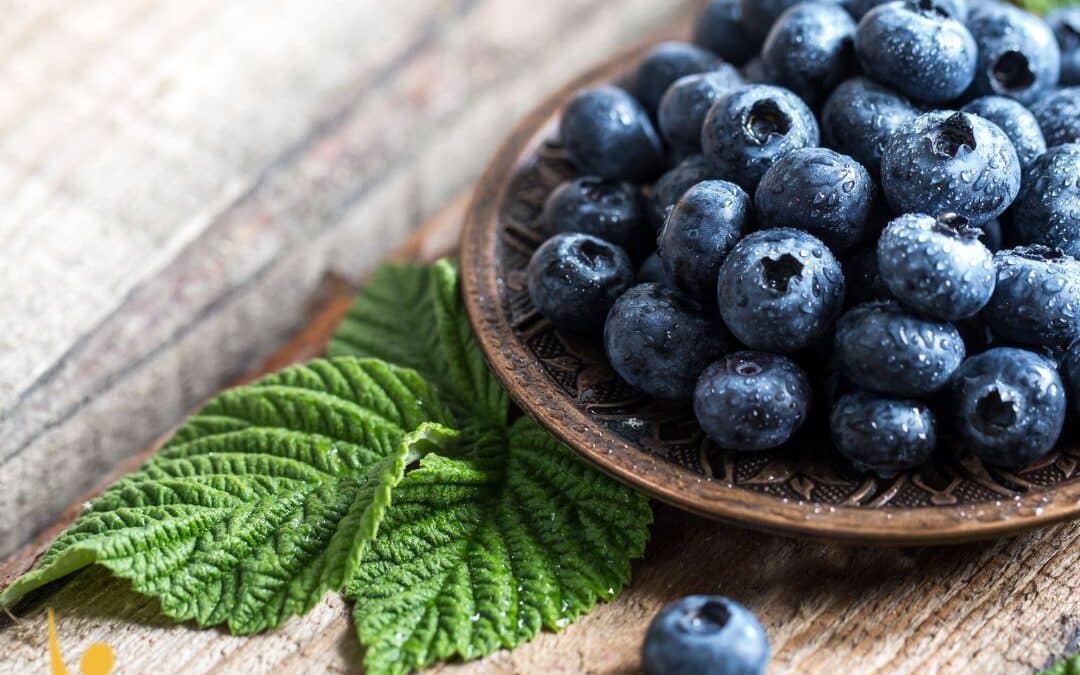If living a longer, disease-free life is on the top of your list, look no further than your kitchen. The science is clear: eating the right foods can lead to improved health and protection from many common diseases like obesity, diabetes, and certain cancers. While many people are quick to lean on the latest supplement or diet fad to get them there, the first line of defense in extending your health starts with the foods you eat.
Below is a list of 10 superfoods that should be regulars in your weekly eating routine. All of these ten foods can be found at your local grocer, and there are many different ways for you to prepare them to enjoy!
- Blueberries
All berries are chock full of antioxidant goodness, but blueberries hold position as king. Blueberries contain polyphenol antioxidants called flavonoids. Flavonoids are believed to protect the body’s cells from oxidative damage that contributes to aging and many diseases like heart disease. Blueberries are delicious eaten alone, used as a topper for oatmeal or yogurt, or mixed into a smoothie. Enjoy 3-5 times per week.
- Broccoli
Broccoli is another nutrition powerhouse, and member of the cruciferous family (which includes Brussels sprouts and cauliflower). Broccoli contains nutrients that activate the body’s natural detoxification system, and help fight off inflammation. Broccoli is a good source of vitamins C and K, folate, and dietary fiber. Enjoy steamed, roasted, or stir fried 2-3 times per week.
- Sweet potatoes
Did you know that the island of Okinawa, Japan boasts the largest number of centenarians in the world? Many scientists attribute sweet potatoes – a staple in their diet – as one of the reasons. Loaded with carotenoids, fiber, potassium, and other antioxidant nutrients, sweet potatoes are nutrition rock stars. Roasted, steamed or smashed, incorporate these deliciously sweet gems into your menu 2 or more times per week.
- Oatmeal
Old-fashioned, rolled, quick cooking, steel cut. Take your pick. Oatmeal is a great source of dietary fiber, most notably the kind that lowers cholesterol. It’s also a surprisingly good source of antioxidants. The dietary fiber in oatmeal keeps blood sugar from rising too quickly after a meal, which helps regulate appetite and can aid in weight loss. Try to avoid instant oats, which can raise blood sugars more quickly after a meal. Make a delicious bowl of oats in the morning; or soak overnight and snack anytime. Add to pancake batter, toss into a veggie burger recipe, or use to make homemade granola.
- Mushrooms
Studies on mushrooms boast an impressive list of benefits: prevention of DNA damage, enhanced immune cell activation, blood pressure control, even weight loss. These tasty fungi are low in calories and a good source of zinc, vitamin D, potassium, fiber and antioxidants. Incorporate a variety of mushrooms into your weekly menu, like cremini, shiitake, button and portobello. They make for a delicious meat substitute too.
- Fatty Fish
The omega-3 fats found in fatty fish like salmon are essential fats that hold the key to preventing heart attacks and strokes. Omega-3 fats also help fight off inflammation and play a role in cognition. Include at least 3 weekly servings of fatty fish like salmon, mackerel, sardines and tuna. And don’t forget that some plant foods also contain these essential fats, including flaxseeds, walnuts, and chia seeds.
- Nuts & Seeds
For as small as they are, nuts and seeds boast rather large health benefits when included in the diet regularly. Consumption of nuts in studies (about 1 ounce per day) has been linked to weight loss, lower body weight, and reduced risk of diabetes and heart disease. Chock full of plant-protein, fiber, vitamins, minerals, antioxidants and healthy fats, include one ounce of nuts or seeds into your daily routine. And don’t forget variety is key: almonds, walnuts, pistachios, Brazil nuts, peanuts, pumpkin seeds, cashews, sesame seeds, chia, flax and pecans all offer a diverse range of phytonutrients that help fight off disease and inflammation, and fight aging.
- Garlic & Onions
Members of the allium family, garlic and onion intake is associated with fending off certain cancers, cardiovascular disease, and diabetes. The organosulfur compounds that derive these antioxidant and detoxifying benefits are released when onions and garlic are chopped, crushed or chewed. Include garlic, onions, even shallots, leeks and chives on a regular/daily basis.
- Fermented Foods
Over the past decade, the intricate connection between the gut microbiome and longevity (and reduction of most preventable disease like heart disease and diabetes) has been realized, and will continue to draw headlines as more research is done. A healthy gut microbiome has been associated with regularity, appetite control, immunity, cognition, weight management, and emotional health. And consuming fermented foods is an easy way for you to introduce these healthy bacteria into your gut to begin the process of building a healthy microbiome. Include a serving of foods like kimchi, kefir, sauerkraut, kombucha, tempeh and cultured yogurt each day.
- Leafy Greens
Spinach, kale, collards, watercress, mustard greens and Swiss chard: chock full of vitamins C, K, A, folate, potassium, magnesium, iron and fiber. Low in calories, full of flavor, dark leafy greens need to be a daily staple. Leafy green intake is associated with reductions in risk of developing heart attack, stroke, diabetes, and some cancers. Since dark greens contain protective plant chemicals called phytonutrients, include a fat like avocado, olive oil, avocado/grapeseed oil, or nuts and seeds to maximize their absorption and health benefits.
These 10 foods are by no means an exhaustive list of foods that will help fight aging and disease, but they are a fabulous way to get moving in the right direction. They are practical, easy to introduce ingredients that you can stock up on and enjoy as rotating items in your meal plan!

